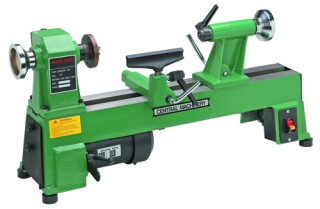Woodworkers use many tools to help them get the best results possible. Most of these tools often have unique designs, and perform different purposes. However, some of them may have overlapping functions, which could confuse woodworkers when shopping for equipment.
If you are trying to select between a shaper and router table, chances are you are not sure which one would serve you best. Not to worry, the decision-making process will be easier after you are done reading what we think about these tools.
Key differences between a shaper and a router table
Shapers and router tables perform similar woodwork and cutting functions. However, they have significant differences that will ultimately impact the quality and outcome of your work. Here are some of the critical differences between shapers and router tables.
Power
The major difference between shapers and router tables is their power source. Most router tables use universal motors, and these motors are known to work best for lightweight tasks. So if you put a constant load on universal motors, they will not function effectively after a while. Shapers on the other hand, use induction motors. These motors are standard on fixed heavy machines, so they make shapers ideal for heavy-duty tasks.
Cutter type
Here, router tables use router bits for cutting, while shapers use spindles. The router bits are permanently fixed to the cutter and then mounted under the table. They are ideal for cutting and designing average wood pieces and carving out beautiful designs in detail. Shaper spindles feature a design that accepts the cutter head and slides back and forth on the spindle. These spindles come in different sizes, and they generally deliver higher cutting power than router bits.
Size
Shapers are generally more prominent than router tables. They are designed with more cutters and accessories, which gives them a larger structure than router tables. Most woodworkers have described shapers as industrial tools and routers as household equipment, and this assertion is partly because of the difference in the size of both tools.
Speed
Router tables generally offer more speed than shapers. Shapers run at a lower RPM than wood routers because of the large shaper cutters attached to the equipment. You'll need to slow it down when performing larger tasks if you want to get the best outcome. The average shaper speed runs at 7,000 RPM, while the average rate for the router table runs at 10,000 RPM.
It is essential to note that despite their relatively slow cutting speeds, shapers will work faster for large, heavy-duty tasks.
Shapers Vs Router Tables: Which is better?
Shapers and router tables have their unique advantages, and none is particularly better than the other. However, two significant factors will ultimately decide if you should get a shaper or opt for a router table; the size of your budget and the tool's purpose.
Price
If you are on a budget, you can consider getting a router table. Router tables generally cost hundreds of dollars, while dollar prices for shapers run into the thousands.
Why? Well, shapers are larger and more sophisticated than router tables. And considering the fact that they are built to perform heavy-duty functions, it's normal for them to cost more.
Purpose
You should get a router table if you want a woodwork tool for small jobs, detailed carvings, and general garage work. Router tables have small router bits that allow you to carve out intricate designs on wood, and help you perform small tasks with precision. In other words, a router table will serve you just fine if you plan to get a tool for essential household functions. However, if you want to get equipment to help you perform larger woodwork tasks, opt for a shaper. Shapers run on high power and are best suited for woodworking experts.
Summary
If you have many woodwork operations going on in your workshop, you should have as many tools as you can get. They will all come in handy someday, and when that day comes, you'll be happy that they are on standby. Both shapers and router tables serve the same primarily the same purpose, but they have their distinct advantages. You can decide to opt for both of them or the one that suits your needs most.






